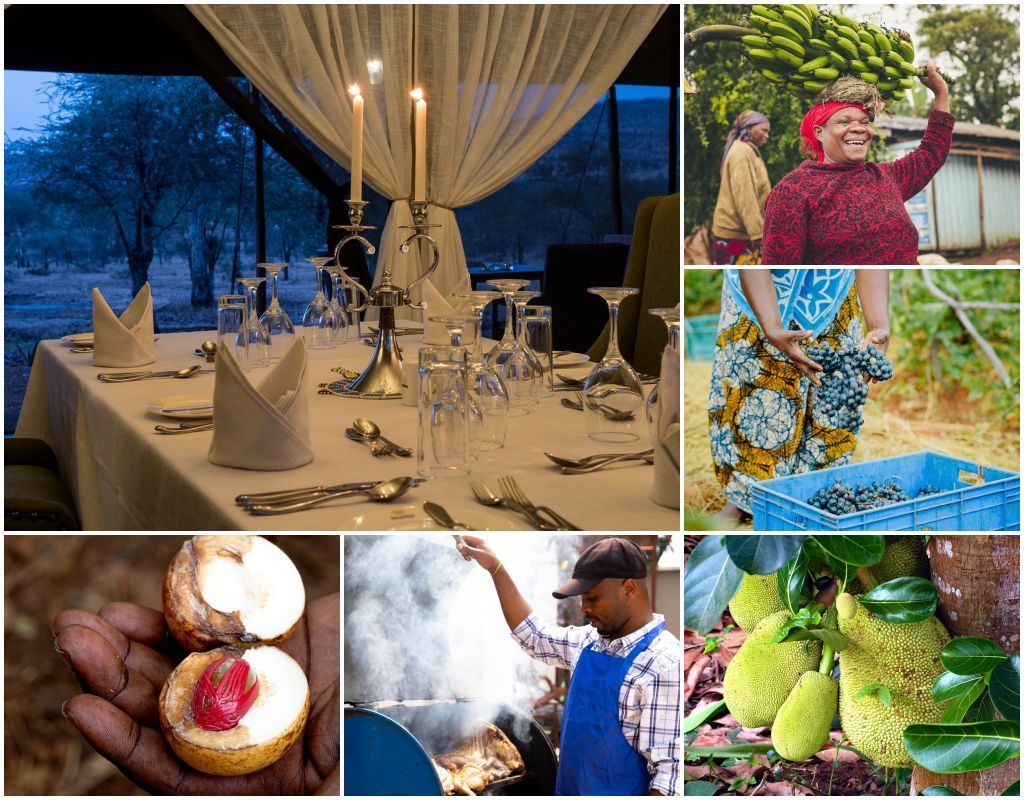Food tourism is making major inroads in Tanzania, where thousands of eager — and ravenous — travelers are headed for a taste of authentic Swahili dishes and warm local hospitality.
“It’s my first time here, but I’m really enjoying the food. The local people are really friendly, too,” said Pamela Rawlings, a tourist from Scotland.
According to her, the East African nation with a long Indian Ocean coastline has great potential to become a culinary tourism hub where visitors from as far as Glasgow can sample sumptuous meals not only good on the palate but also rich in nutrition.
“When I visit a place, I’m always keen to visit places where people eat. And where ever possible, I try to eat with them at their homes,” Rawlings said.
Food is an important part of Tanzanian culture, which attracts foreign visitors seeking, like Rawlings, a complete experience with a cocktail of history, culture, and cuisine, say local caterers.
Growing trend
In the local scene, there has been a steady rise in the number of food and beverage events — cookery training and competitions, as well as food tour companies trying to sign on both domestic and international tourists.
Hotels and restaurants now also have cultural nights and food celebrations from different parts of the country, said Geoffrey Meena, a marketing manager at the Tanzania Tourist Board, a government agency tasked with promoting tourism.
As an ideal setting for culinary tourism where visitors can explore localities through their dishes and flavors, Meena said the East African nation offers a wide array of options for discerning travelers to suit the changing eating habits.
From sampling street food in the bustling Kariakoo business district of Dar es Salaam to attending cooking classes with local chefs, experts say Tanzania is rapidly getting on the radar as a culinary destination for holidaymakers chasing authentic culinary and travel experiences.
According to Meena, tourists are always treated with fine local cuisine, with all the culinary variations of Ugali, Mlenda, Machalari, Makande, Matoke, tasty Pilau, and Nyama Choma, as well as some of the finest local wines and beers.
“Tourists often spend time with local food vendors and learn how to cook a wide range of African cuisines,” Meena said.
While each region has its own favorite food joints, experts said Dar es Salaam, Arusha, and Zanzibar offer some of the most sought-after food tours.
“We focus on quality and hygiene to ensure a safe experience for the visitors,” said Meena.
Speaking to Anadolu Agency, a tourist from Norway, Irene Christiansen, said she fell in love with Tanzanian food culture.
“The food here is fresh and tasty as compared to the food I eat in Norway,” she said.
Brand awareness
Lulu Adam, the chairwoman of the Association of Tanzania Caterers, told Anadolu Agency that booming culinary tourism has created strong brand awareness and potential loyalties.
“Many tourists would want to go to certain restaurants to eat local dishes of their choice,” she said.
According to Adam, local cuisine is a key motivating factor for tourists to choose a local destination, with a bigger budget apportioned to food-related activities.
She added that tour operators have also added culinary tours to their itinerary to enrich tourists’ experiences.
“Our visitors like to see how the food is grown, harvested, and made into a dish,” Adam said.
Meanwhile, the Tanzania Tourist Board has been working to promote culinary tourism through food competitions.
“Local cuisines have put us on the global map. Tourists’ experience is incomplete without eating local food and without knowing how to prepare it,” said Meena.
Strong bond with the community
Rawlings, a tourist from Scotland, said delicious local foods have helped her understand and build a strong bond with local communities.
“Though I know how to cook fish and Ugali, it was a refreshing experience learning the same from a professional Tanzanian cook,” she said.
For Rawlings, what she learned on how to make local dishes has been the most exciting experience of her visit to Tanzania.
“There’s no better way to experience people’s heritage than feasting on their food,” she said.
Through food and the spices used, one can understand the local geography, landscape, and vegetation, she said.
Source: AA















